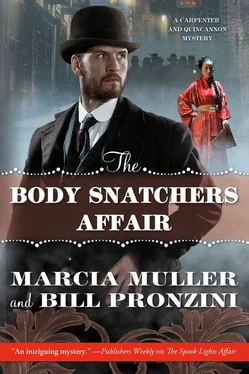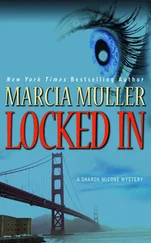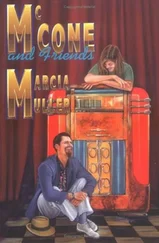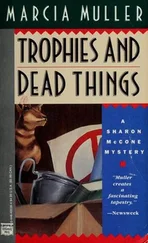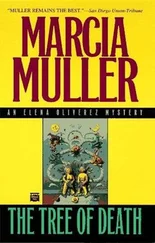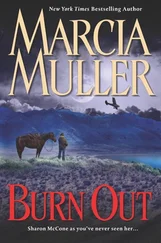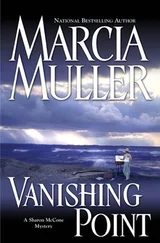She wondered if she should have requested an earlier meeting time in her message. This distressing situation with Carson and the Gold King scandal and the death of Artemas Sneed was a heavy weight on her mind; the sooner she had a firm grasp on the truth, the better able she’d be to deal with it. But no, one o’clock was soon enough. She might well have pressing agency business to attend to in the morning.
Briefly she considered, as she had on the ride up from Davis Street, whether she should notify the police — anonymously — of the dead man in Sneed’s room at the Wanderer’s Rest. It was the proper thing to do. John might be cavalier about bending and breaking the law, but she wasn’t; Stephen and the other Pinkerton agents she’d known had taught her to obey it except in incidents of dire necessity. There was no such necessity in this case. The body would be discovered soon enough, she had no specific knowledge of who had committed the crime, and the police would have little interest in the violent death of an ex-convict and Barbary Coast hanger-on — except, she thought wryly, to “confiscate as evidence” the sixty dollars in his purse if the money was still there when they arrived on the scene. Only the hack driver had seen her entering and leaving the rooming house, she was sure of that, and he would have no reason to come forward; homicides were so common in the rougher sections of the city that they were seldom reported in the newspapers. Her wisest course of action was to do nothing at all until she met with Carson tomorrow.
She closed her eyes, shifted her tired body into a more comfortable position, and let the rattling of the wheels and clopping of the horse’s hooves lull her into a half-doze the rest of the journey to Russian Hill.
Friday morning was bright, sunny, the air crisp and winey as well as briny, and Quincannon whistled “The Drunkard’s Funeral,” one of his collection of temperance tunes, as he alighted from the Powell Street cable car and proceeded at a brisk pace down Market Street. The briefcase he carried swung loosely at his side, but his grip on it could not have been tighter.
For once, he arrived at the office before Sabina. The morning mail had already been delivered; he scooped it up from the floor under the mail slot and tossed it on his desk. Went to turn up the steam heat to dispel the lingering night’s chill, then knelt and twirled the combination lock to open the office safe. It was a Mosler, one of the best manufacturers of strongboxes; large, bolted to the floor, and as secure as any private business could expect. Far more secure than the small one in his bedroom.
He opened the briefcase and transferred the files he’d appropriated from James Scarlett’s law office to the safe. They constituted important evidence and now he didn’t have to worry about their safety until the time came to turn them over to the authorities.
The mail wasn’t such-a-much — only one containing a check in payment for services rendered, the rest circulars, bills, this month’s issue of the Police Gazette . There was also a sealed envelope with “Mrs. Carpenter” scrawled on it in a barely legible backhand. The writing was familiar, that of the news vendor, Slewfoot, one of their more reliable informants. A communication from him, as from others in the city-wide network of information sellers, was often delivered in this fashion after office hours.
He was putting the envelope and the bills on Sabina’s desk blotter when the telephone bell jangled. Alexander Graham Bell’s invention had its uses, but he had yet to get used to the sudden shrill clamor of its summons. He cut off the noise on its second ring.
A woman’s imperious voice said, “Is that you, Blackbeard?”
Mrs. Harriet Blanchford. Not even such as the Blackbeard slight bothered him this morning. He said cheerfully, “John Quincannon, Mrs. Blanchford,” listened, said, “No, Mrs. Carpenter, hasn’t come in yet this morning. I imagine she’ll arrive shortly.” Listened some more and then said, “Yes, I’ll make sure she gets the message,” and was rewarded with an abrupt termination of the call. Ah, well, the elderly had their privileges, a tolerable amount of rude behavior among them. The more so when the party involved was wealthy and destined to be another satisfied client.
He would be leaving shortly, so he sat down to commit Harriet Blanchford’s message to paper. He was in the process when the door opened to admit his erstwhile and much coveted partner.
“Good morning, my dear. Beautiful day, isn’t it.”
“Is it?” she said. Her tone was uncharacteristically bleak. “What makes you so jolly today?”
“Considerable progress on the Scarlett case. What makes you so dispirited?”
Sabina didn’t respond. Instead, she went about unpinning her hat and hanging up her cape on the coat tree. He inspected her more closely as she did so, and what he saw was alarming. She looked even more tired today, her eyes betokening a sleep-deprived night. There was a remoteness about them, too, as if her mind were heavily burdened. And her mouth and jaw bore the kind of tightness that came from teeth-clenching. Carson Montgomery again? If the man had harmed or severely upset her in any way...
Quincannon watched her sit at her desk. She noticed the “Mrs. Carpenter” envelope immediately, opened it, read the paper inside without a change of expression, reinserted it, and put it aside.
“Good news?” he asked.
“Expected news.”
“The Blanchford case?”
“Yes. Is this the only message that came for me?”
“Were you hoping for another?”
“No. Just the opposite.”
“Well, I have more Blanchford news for you,” he said. “The widow telephoned not five minutes ago. It seems the kidnappers kept their promise after all.”
“Her husband’s body is back in the family crypt?”
“Brought there and deposited sometime last night. Her son found it there this morning.” Sabina’s expression prompted him to add, “You don’t seem surprised.”
“I’m not. Also as I expected.”
“The body was returned in the same mysterious manner as its taking, Mrs. Blanchford said. What did she mean by that?”
“It was allegedly stolen in what appeared to be an impossible fashion, the crypt being still sealed with no tampering of its door lock and Mrs. Blanchford in possession of the only key.”
This announcement warped Quincannon’s brow. He said, “And returned in the same fashion, evidently, if the crypt was locked again this morning.”
“Not quite, but close enough.”
“So. A seemingly impossible crime, and you didn’t tell me about it?”
“I didn’t need to.”
“You mean you’ve solved the mystery? How?”
“That’s a silly question, John. By detective work and deductive reasoning, of course. You don’t honestly believe you’re the only one adept at that sort of conundrum, do you?”
“No, but I’ve had a great deal of experience—”
“And I haven’t? Oh, but naturally my skills are nowhere as preeminent as yours.”
Quincannon felt himself being boxed into an uncomfortable corner. He squirmed his way to safety by saying, “That’s not true. They’re every bit the match of mine,” but the words weren’t merely a convenient sop; he meant them, much as it bruised his ego to admit it. “So now you know who’s behind the Blanchford snatch.”
Sabina seemed mollified, at least temporarily. “Who, and how their tricks were worked. A bumbling fool’s game from start to finish.”
“How so?”
Instead of answering his question, she changed the subject — or so he thought at first — by asking a question of her own. “Have you found out the significance of Fowler Alley yet?”
Читать дальше
